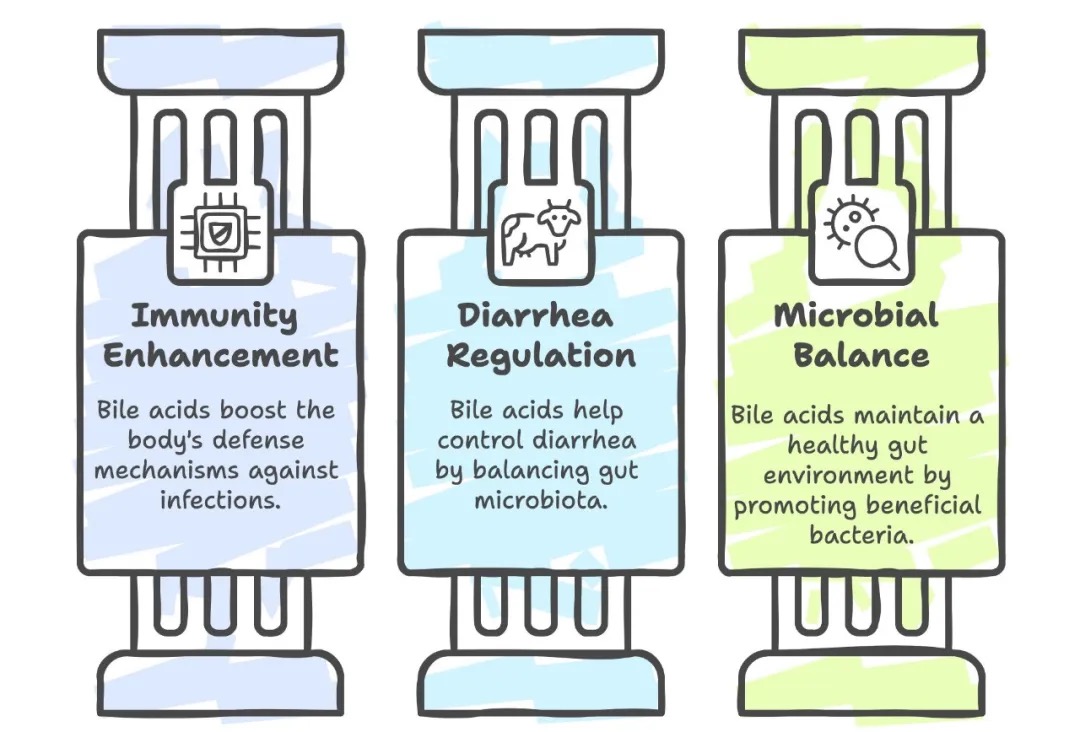Applications and Prospects of Bile Acids in Ruminant Production
Author:Lachance
Time:2025-04-29
Hits:
The weaning transition period in young ruminants can lead to weaning stress, reducing immunity and causing diseases such as diarrhea, which may even result in death.Bile acids not only enhance immunity but also regulate diarrhea and other disorders caused by microbial imbalance. They help maintain a healthy intestinal microecology by promoting beneficial microbiota growth and inhibiting harmful bacteria.In meat-producing ruminants, intramuscular fat deposition plays a decisive role in marbling formation, affecting meat quality attributes such as tenderness, juiciness, flavor, and color.Bile acids are key metabolic regulators, functioning not only in lipid absorption but also as signaling molecules that finely modulate liver inter-tissue communication, influencing metabolism and synthesis.Studies show that supplementing Wagyu cattle diets with ursodeoxycholic acid can enhance marbling without causing growth defects and improve carcass characteristics.Adding exogenous bile acids to lamb diets effectively redistributes fat without negatively affecting growth performance or health, helping increase lamb meat yield while reducing subcutaneous and tail fat deposition.Thus, further research into the mechanisms of bile acids in meat-producing ruminants can improve our understanding of their impact on intramuscular fat deposition, optimizing fat content, enhancing meat quality, and shortening the fattening cycle.During the perinatal period, dairy cows are prone to fatty liver and ketosis, and even high-concentrate diets may not ensure sufficient fat emulsification and absorption. However, bile acids promote fat and fat-soluble nutrient digestion and absorption while improving glucose utilization.Moderate supplementation of bile acid salts in dairy cow concentrates significantly increases milk yield and feed digestibility without adversely affecting milk composition.Therefore, adding bile acids to ruminant feed may help prevent perinatal fatty liver and ketosis in dairy cows, improve reproductive performance, alleviate negative energy balance, enhance overall health, optimize lipid utilization, increase milk fat content, and boost daily weight gain and feed efficiency in meat-producing ruminants.Applying bile acids in ruminant farming and other livestock production systems presents new opportunities and challenges for improving meat quality, increasing production efficiency, and meeting consumer demands.



